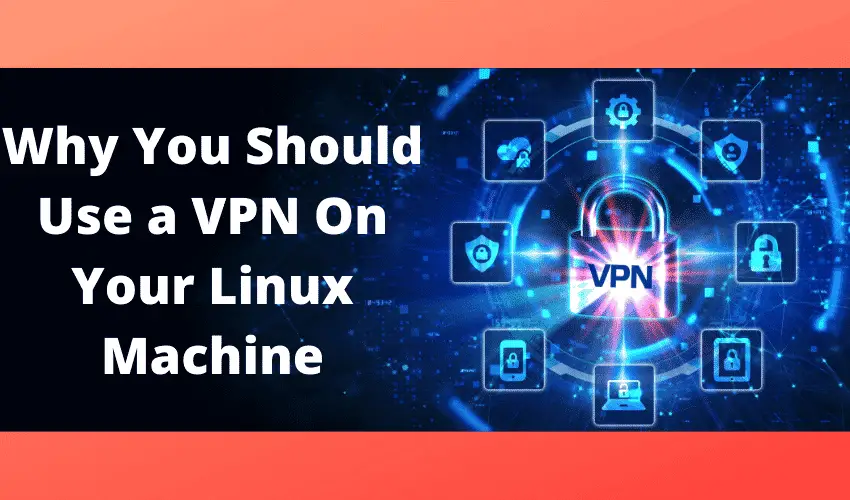Linux is an operating system used for many different purposes, including programming, ethical hacking, and simply studying. These activities require constant internet connection and security to protect critical data like code or client information.
Since VPNs are often touted as a go-to tool for securing your internet connections, let’s explore exactly why you should use one on your Linux machine.
Recommended Read: Top Linux commands that every DevOps professional & student must know
It will protect sensitive data and ensure privacy
A VPN uses encryption to secure your internet connection. In other words, it hides your internet activity and protects your identity, ensuring secured internet access at all times.
It does this by funneling data packets from your device through a third server hosted by the VPN service. When the data packets reach the destination network, they will be encrypted. This process is usually very quick, so you shouldn’t suffer lower internet speeds after you install a VPN.
Even if you’re using Linux for light internet browsing and document editing, a VPN will come in handy. It will hide your IP address, making it impossible for anyone to identify or locate you through the internet.
Can a VPN get hacked?
There have been instances where VPN servers were breached in the past. For example, in 2019, NordVPN was reported to have been hacked. But the truth about the breach was that one of their third-party servers was hacked, and no user data was leaked. Because of how resilient VPNs are even when an attack happens to one of their servers, they’re an excellent way to safeguard your Linux device and boost your privacy.
Unrestricted internet access
While the main selling point for a VPN is security, there’s another feature that people love - unrestricted access to all internet content. With stricter censorship and licensing agreements, geoblocking is becoming a problem.
A VPN lets you bypass geo-blocks by connecting to a virtual server based in a country where the content is available.
For example, if you’re from Italy and connect to a US server, you will have access to the same shows on a streaming service as you would if you were in the US. Remember, however, that companies may have policies against using third-party software to access restricted content.
This feature can even help you save money. For instance, buying a plane ticket from India is often cheaper than buying the same ticket from England.
Ability to work from anywhere securely
Remote working took off in the past two years, and it seems like it’s becoming the standard. But one factor that’s pushing many employers to rethink their remote work policies is security. Employees are using their personal devices for work and using internet networks that are far less secure than what you’d find in the office.
Luckily, a VPN is the perfect remedy for all these issues. It will protect the devices by encrypting their traffic. By doing so, it will also make it safe for employees to use public networks. No matter where employees connect from, they will have a secure connection to do all their tasks. All of a sudden, public WiFi is no longer a problem.
Data privacy from your ISP
Even if you never use public WiFi, your home network is also susceptible to “spying”. In the case of ISPs, it’s not necessarily spying, but that they gather and sell your data to advertisers. Some people don’t mind and even enjoy receiving personalized ads. But if you want to maximize your privacy, using a VPN on your home network is one of the best ways to do so.
Conclusion
Linux is considered one of the safest OS options compared to its major competitors. But the benefits of VPNs can come in handy no matter how safe your device is considered to be. VPNs have numerous different use cases, including internet traffic encryption, access to geo-locked content, and the ability to use public networks more safely.
We are giving you exclusive deals to try Linux Servers for free with 100$ credit, check these links to claim your 100$,
DigitalOcean - 100$ free credit & Linode - 100$ free credit
Check some Exclusive Deals, HERE.
Also, check out DevOps Book You should read section.
